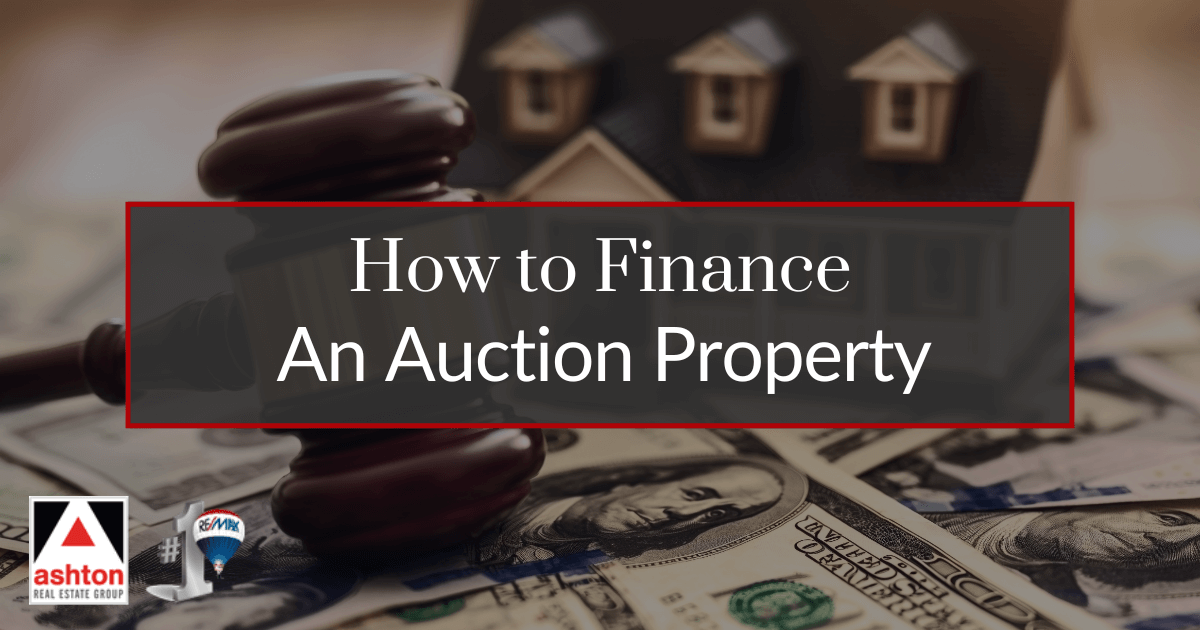
While auctions can provide a way to purchase foreclosures at lower prices, the foreclosure process typically involves selling properties as-is without any home inspections or appraisals.
Buying a home at an auction involves less competition with other buyers than traditional home purchases, but financing real estate from an auction differs from buying a house the traditional way. Those planning to buy a home at an auction must explore other ways to finance this real estate purchase.
For informational purposes only. Always consult with a licensed mortgage or home loan professional before proceeding with any real estate transaction.
6 Ways to Buy a House at Auction With a Loan
- Hard money loans (quick but expensive)
- Home equity loans (if you own property)
- Personal loans (limited amounts)
- Cash-out refinance (after purchase)
- Peer-to-peer lending (risky without research)
- Traditional mortgage (rare but possible)
Why Most Auctions Require Cash (And What That Means for You)
Real estate auctions move fast. Really fast.
Traditional mortgages take 30–45 days to close. Most auction houses give you 3–10 days to complete your purchase. See the problem?
Foreclosure auctions sell properties "as-is" with no inspections. No appraisals. No warranties. Mortgage lenders hate that, because they can't verify what they're lending money for.
You'll usually be required to prequalify to attend a house auction. Many auction houses require cash, cashier's checks, or guaranteed funds on the spot. Some may accept loan preapprovals.
How to Finance an Auction Property
Buyers interested in purchasing a home at an auction should carefully review financing options while creating their budget. Some options come with added costs, such as interest, which can lead to a higher price overall. For other financing options, buyers must meet specific requirements to be eligible.
Knowing more about different types of financing for purchasing a foreclosure can help buyers determine the best choice for their situation. The following are some ways buyers can finance a house at an auction.
Cash-Out Refinance
Cash-out refinancing allows buyers to purchase a home and take out equity from the property immediately. In this case, buyers pay for the home at an auction, then refinance afterward. They can then use this equity to repay the borrowed money to purchase the home.
A cash-out refinance involves getting an inspection and appraisal done on the property. Therefore, this financing option might not be suitable for houses in poor condition. They need to appraise well enough for the refinance.
Home Equity Loans
Home equity loans offer a way for current homeowners to finance a home purchase at an auction based on equity. Buyers with enough home equity can apply for a home equity loan and use this money to buy a foreclosed home. These loans usually provide higher amounts than hard money, personal, and other types of loans. They also tend to have lower interest rates and longer repayment terms.
Buyers should remember their current home is used as collateral for a home equity loan. Failing to make payments on this loan can lead to foreclosure.
Personal Loan

Banks, credit unions, and other financial institutions sometimes offer personal loans for those who meet eligibility requirements. This is usually based on a borrower's credit score, credit history, income, or other means of repaying the loan.
Personal loans typically do not require any collateral from borrowers. The terms and conditions of these loans vary from lender to lender and usually have longer terms for repayment than other financing options. However, some have high-interest rates. Those planning to purchase a home at an auction can usually receive funds quickly with a personal loan.
Hard Money Loan
Hard money loans offer a fast way to finance a real estate purchase at an auction. The approval process is generally quicker than the approval process for home equity loans and other financing options. However, hard money loans also tend to have higher fees and rates, which can significantly increase the overall cost of an auction purchase.
Hard money loans have a low loan-to-value ratio, which might require buyers to come up with a higher amount for a down payment. The amount of these loans depends on the value of the foreclosure.
Peer-to-Peer Lending
Peer-to-peer (P2P) lending provides another quick way to finance a home at an auction. This type of lending involves using platforms that help buyers find individuals or groups to loan them money. P2P lending can have higher down payments and rates, just as hard money loans do. However, exact terms vary from lender to lender.
This type of lending might not be available for foreclosures with higher price points, and some P2P lenders have limits on the amounts they can finance. Buyers approved for a P2P loan can usually receive the money in a short amount of time.
Traditional Mortgage
Purchasing a home at an auction with a traditional mortgage can be done sometimes, although it's unusual. Conventional mortgages typically take at least 30 days to process. Depending on the auction date, those buying a foreclosed home might need to secure this money sooner.
Using a traditional mortgage for an auction purchase involves finding a lender who can process it in a shorter timeframe. Another option for those who want to use a conventional mortgage is purchasing a foreclosure from a bank that provides a longer timeframe for payment, such as several weeks instead of a few days.
Buy With Cash
Purchasing a home with cash allows buyers to pay for it upfront. Buyers must show they have the funds to buy a home at an auction. In some cases, buyers must show that they have secured funding to make a bid on a property. Paying with cash means that this funding is already secured.
Using cash for these purchases helps buyers avoid paying more in the long run due to interest rates and other fees. Buyers can typically pay for a home with cash, a cashier's check, or money order.
The Real Estate Auction Process: What to Expect
First: Are You Attending a Foreclosure Auction?
Not all house auctions are because of foreclosure or unpaid property taxes. Some sellers simply prefer to go through an auction company rather than real estate agents.
Foreclosure auctions are typically in-person auctions, usually at the courthouse. However, you can also find online auctions. Real estate auction websites typically give you more time to get your finances in order once you win a bid.
If you're buying a foreclosure, you should be aware of potential redemption periods. The former owner may be able to reclaim their house even after you've purchased it, though they'll have to reimburse you. In Tennessee, for example, the redemption period lasts two years after the foreclosure.
Preparing for a foreclosure auction also requires more due diligence, since financial distress usually leads to home neglect.
Auctioneering Terms You Should Know
Knowing these will help you know what to expect at a house auction.
- Absolute Auction Without Reserve: The seller can't withdraw the property from the auction once bidding starts, unless no one bids in a reasonable timeframe. The seller can't bid on the property themselves or through an agent. The property has a "marketable title," i.e., it doesn't have liens or legal issues that would affect its value. The property goes to the highest bidder—if there's only one bidder and they offer $5, they get it.
- Auction With Reserve: In this type of auction, the seller reserves the right to set a minimum bid, accept or reject any and all bids, and withdraw the property at any time before the auctioneer completes the sale.
- Reserve auctions are slightly different from minimum bid auctions. Minimum bid auctions have a posted minimum amount (for example, the remaining mortgage balance on a foreclosure). Reserve auctions don't announce the minimum bid amount; the seller just rejects the final bid if it isn't high enough.
- Buyers Premium: The buyer pays the auctioneer an additional fee (usually a percentage). The amount and deadline for payment will be advertised in advance.
- Blind Bidding: Also called "closed bidding." Bidders won't know what other bids have been made or how many people are bidding. "Open bidding" is the opposite.
Before Auction Day
Research properties thoroughly. Drive by every house you're considering. Check property records for liens and back taxes.
Most auctions require bidder registration and proof of funds. Bring bank statements showing you can actually pay.
Set your maximum bid price and STICK TO IT. Auction fever is real, and it's expensive.
During the Auction
Auctions move fast with competitive bidding. The highest bidder wins, period. It's not like a normal home sale where offering a flexible timeline or other concessions can make your offer more appealing.
Most auctions require a deposit on the spot—usually 10%–20% of the winning bid.
Pro tip: Bid confidently but know when to walk away. There's always another property.
After Winning Your Bid
You'll have limited time to complete the purchase—often just 3–10 days.
Get your financing lined up BEFORE auction day, not after. Delayed financing could cost you the property and your deposit.
Hidden Costs of Buying a House at Auction
Auction fees add up fast. Expect to pay:
- Buyer's premium (5%–10% of winning bid)
- Registration fees
- Documentation fees
- Property taxes (often owed from previous owners)
- Immediate repair costs
- Closing costs
Reality check: Factor these into your maximum bid. That $200,000 house could easily cost you $225,000+ by closing.
Warning: Auction Properties Come With Risks
No Home Inspection
You're buying sight unseen. This is one of the biggest downsides of buying an auction house. That charming exterior might hide serious foundation problems, electrical issues, or environmental hazards.
Foreclosed homes are often neglected or even vandalized. Budget extra for repairs and cleanup.
Existing Liens and Tax Issues
Some liens survive foreclosure auctions. You could inherit the previous owner's tax problems or contractor disputes.
Limited Legal Recourse
Most auction sales are final. No returns, no exchanges, no warranty claims.
Is Auction Financing Right for Your Situation?
Auction financing works best if you:
- Have real estate investing experience
- Can afford significant repair costs
- Have backup financing options
- Can act quickly under pressure
- Understand local property values well
Skip auctions if you:
- Need financing contingencies
- Want move-in ready homes
- Prefer thorough home inspections
- Need 30+ days to arrange financing
- Are a first-time home buyer
Smart Strategies for Auction Success

Before You Bid
Get pre-approved for multiple financing options. Don't rely on just one lender or loan type.
Research recent sale prices for similar properties in the neighborhood. Auction properties should sell below market value to account for risks and repair costs.
Set a firm budget including all fees, repairs, and financing costs. Write it down and don't exceed it.
During Bidding Wars
Bid strategically, not emotionally. Each bid should make financial sense based on your research.
Watch other bidders for signs of their maximum limits. Experienced investors often have firm stop points.
Know when to quit. There's always another auction, another property.
For informational purposes only. Always consult with a licensed mortgage or home loan professional before proceeding with any real estate transaction.
Consider Your Options for Financing Your Home Auction Purchase
While less competition and lower prices are some benefits of purchasing a home at an auction, buyers must consider their financing options carefully as they can differ from the traditional home-buying process. With the proper research for their situation, they can choose from several options to best fit their needs.



